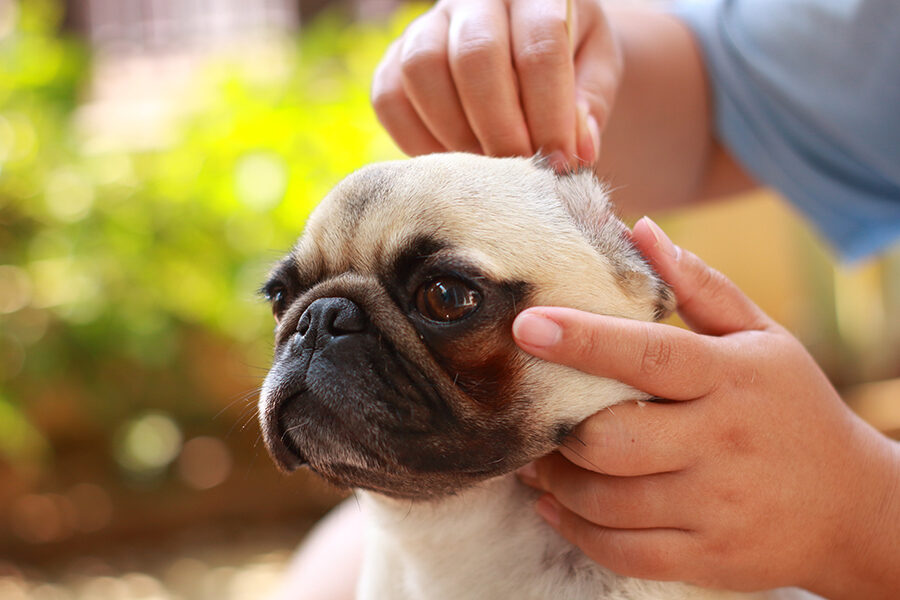Having a dog can make your life joyful and rewarding. While your dog cannot speak, he/she can offer you unmatched loyalty and a rare warmth that you will not find in most pets. However, it is also necessary that you keep your pet dog in top shape. Dogs develop numerous health issues owing to genetic reasons and external factors. While you cannot be an expert in detecting canine ailments like a vet, learning about some commonplace ailments affecting the dogs can be useful. You should learn the basics about vestibular disease.
The nuances of vestibular disease
One of the commonplace ailments affecting various dog breeds is vestibular disease. It impacts the ear sensory receptors in a dog’s body. This affects the animal’s sense of balance. This ailment eventually affects a dog’s body balance and causes symptoms like involuntary rapid eye movements, circling, head tilt, etc. It may also reduce the dog’s appetite. Apart from head tilting, an affected dog may also exhibit symptoms like vomiting, and he/she may prefer sleeping on a hard surface.
It is not exactly known what causes this ailment in dogs, but in most cases, the root cause is attributed to an inner ear infection, ruptured eardrum, and a head injury. In some cases, dogs develop this as a side effect of being administered antibiotic medications. While it can happen to most dog breeds, German shepherds and Doberman pinschers tend to get more affected than the others. Both older and young dogs can get affected by this condition.
While the vestibular disease is not life-threatening, it can cause much discomfort to the affected dog- for sure. The good thing is timely medical intervention can cure the ailment, and your dog can live a better and healthy life. Typically, a dog can recover from the condition within three weeks- sometimes without medical intervention.
You need to look out for the key symptoms of the condition. These are:
– Walking in circle.
– Acting dizzy.
– Rolling to a side.
– Head tilting.
– Abnormal eye positioning.
– Shaking head.
To some dog owners not acquainted with the symptoms, it may seem the dog is acting weird. However, observe if the symptoms are recurring or not.
What to do when your dog is affected by the vestibular disease?
In many cases, dogs afflicted with vestibular disease may recover on their own, and explicit medical intervention may not be required. However, that does not mean you should overlook the symptoms in your dog. If the symptoms persist and you feel the dog is not feeling okay, take him/her to a vet without delay. The vet will examine the dog well and try to fathom the root cause. Thereafter, the vet will prescribe specific tests and suggest medications as per the outcome of the tests. X-ray and other tests may be required for a proper diagnosis. Sometimes, they recommend giving the dog anti-nausea medications.
While the dogs take a few weeks to recover from the conditions, you should make things easier for your dog if he/she contracts the ailment. For this, you can do the following:
- Keep the dog in a well-ventilated place and ensure distressing elements are kept away. Do not play loud music or indulge in noisy activities near the dog. Keeping the animal away from any type of stress is important for recovery.
- Ensure food and water are kept within reach. The dog should be given a low-height bed to you may make bedding on the floor itself.
- Ensure the dog does not climb the staircase as well. It will enhance the risk of falling and getting injured.
- Until the dog recovers fully from the ailment, refrain from taking it for running and walking outside. Do not let the kids and others in the family engage the dog in much physical activity inside the home as well.
- Besides, give any medicine suggested by the vet to help your dog recover from the condition fast. You may also need to make some alterations to the dog’s diet, as per the guidance of the vet.
- You may also seek suggestions from your dog-owner relatives and friends regarding the ways to deal with a dog coping with the vestibular disease better. You will get some useful resources in online dog support groups and forums as well.
Summing it up
Vestibular disease is usually not severe, and your dog is likely to recover from it without complications. Dogs require some time to ensure they can recalibrate their vestibular system. Give your dog some time before you can involve him/her in daily activities.
Check for relevant dog tests at Pawpurrfect’s pathology services.








